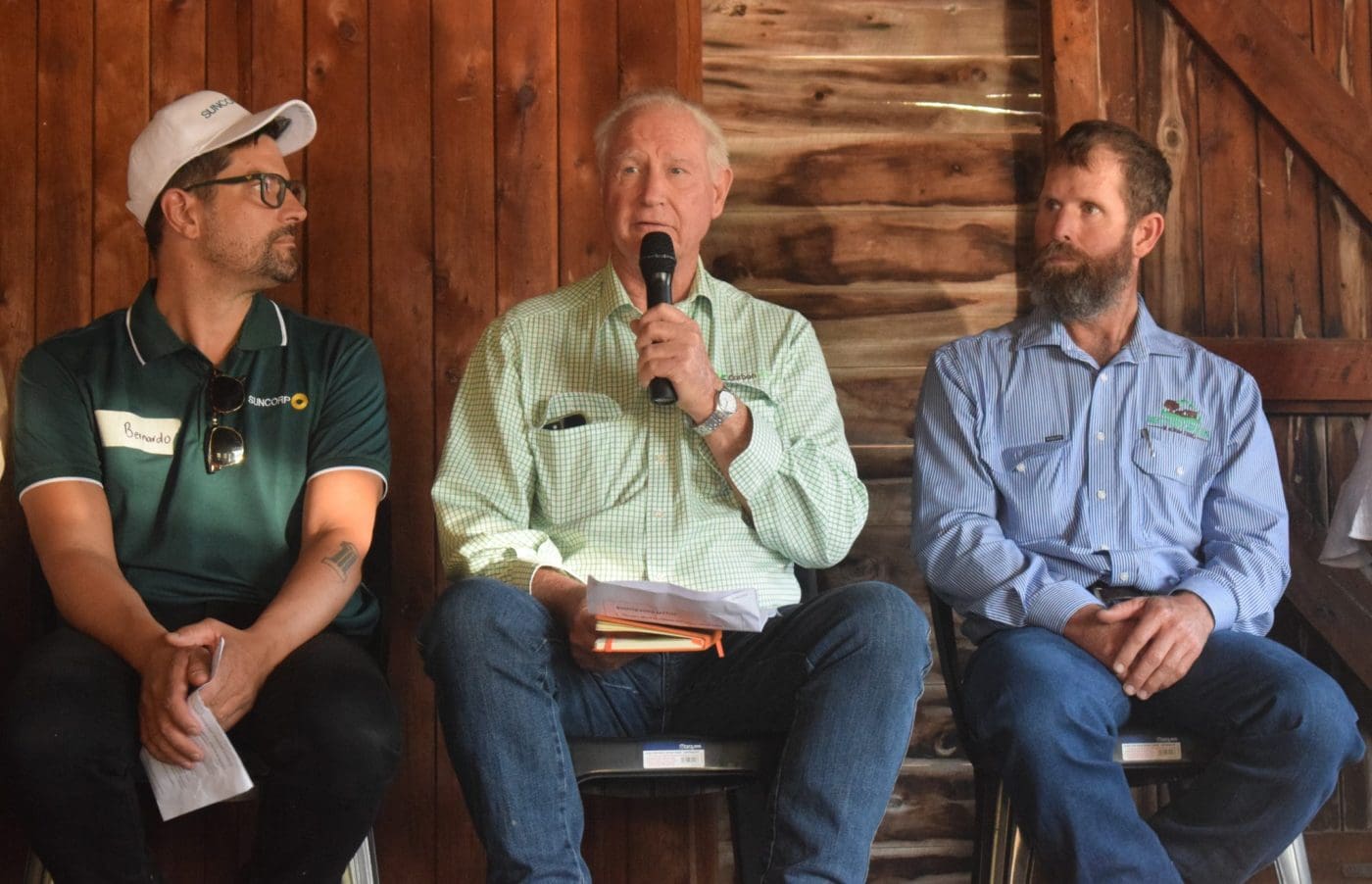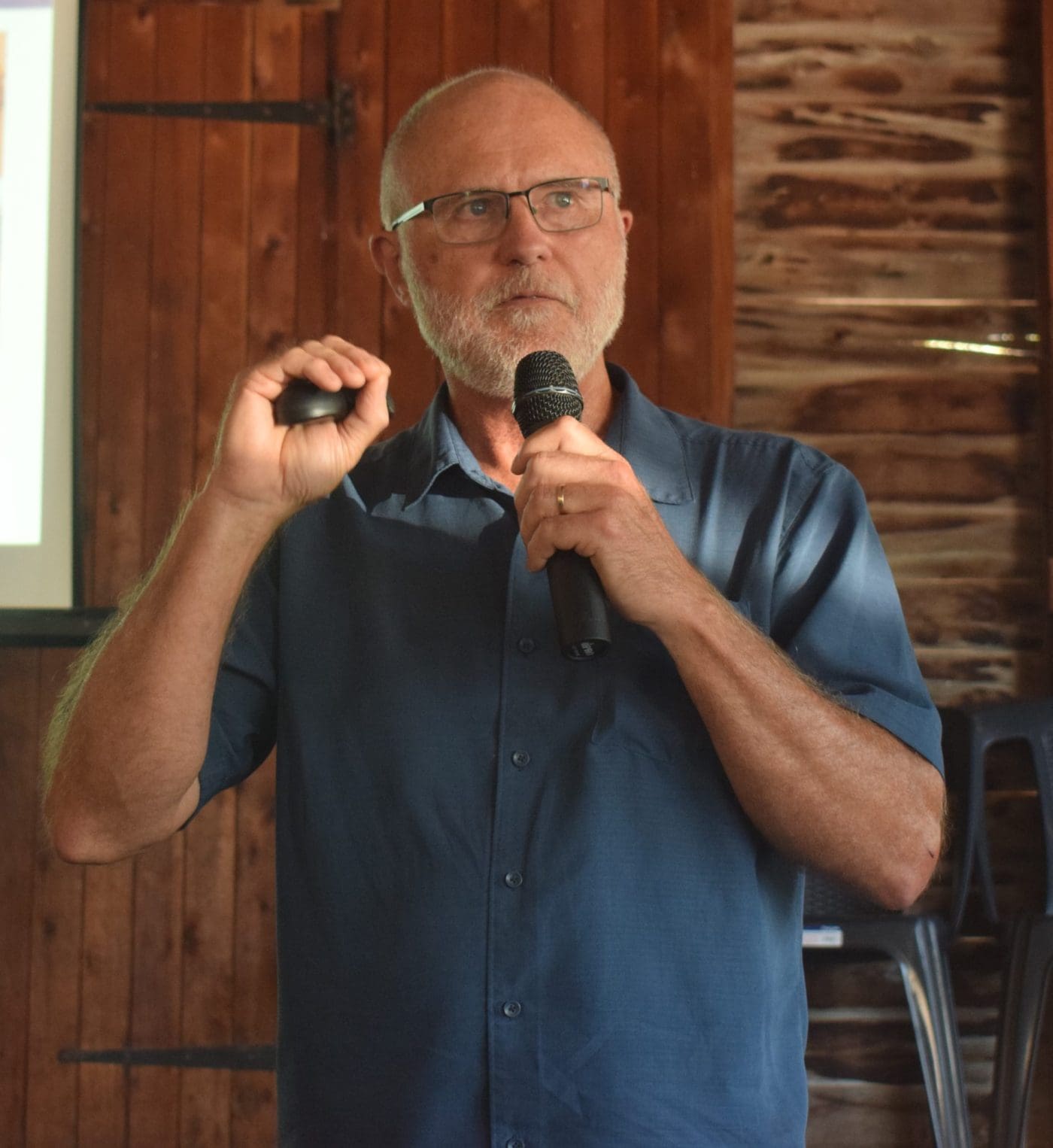AS THE Queensland Government assesses a proposal to pump waste CO2 into the Great Artesian Basin, two well-known agricultural scientists have voiced their concerns for the proposal.
Glencore subsidiary Carbon Transport and Storage Corporation is planning on running a trial to take waste CO2 from the Milmerran Power Station and inject in the sandstone precipice aquifer of the GAB.
The project has received the green light from the Federal environment department, who say it does not fall under Federal law, and is now in the hands of the Qld Government.
While Glencore is sticking by the project, agriculture groups have been strongly opposed and have been calling for the Federal Government to intervene. Agforce has also started a fundraising campaign for possible legal action.
Questions about the project were put to a panel at the McIntyre Ag Alliance field days in Goondiwindi – which included RCS and Carbon Link founder Terry McCosker and University of Melbourne professor Richard Eckard.
Dr McCosker said the Glencore proposal was an example of how climate policy is impacting agriculture.
“There is a lot of pressure coming on the big emitters at the moment, mining and gas companies are the really sharp end of it,” he said.
“They have taken this thing for granted, they have coasted along from the last five or 10 years thinking it will never happen and now things are going to have to start happening from July.”
Safeguard mechanism putting companies out of business
Last year the Federal Government made changes to the safeguard mechanism, which limits emissions from companies and makes them purchase carbon credits if they exceed a certain baseline. That baseline will now decline over the next until 2030.
Since receiving a significant issuance of carbon credits last year, Dr McCosker said he had heard from a lot of companies who were concerned about how much they are going to have to pay.
“We had one emitter come through the door, they are emitting about 180,000-200,000t of CO2/year and under the process they are using they can’t reduce those emissions,” he said.
“They fall under the safeguard mechanism and they have to lower those emissions every year, but they don’t have the technology to do it. They have been looking for new technology but they can’t find it.
“Their only option is to buy carbon credits to offset their emissions and one of them told me that if they have to offset all their emissions than they are better off shutting the show down because they will be uncompetitive in the global market – and this is a big industry in Qld.”
Earlier in the day University of Melbourne professor Richard Eckard spoke of some unintended consequences of climate policy that had resulted in mass tree plantings on prime agricultural land in Western Australia and New Zealand.
Dr McCosker said proposals like Glencore’s and mass mono-culture tree plantings emphasized the importance of soil carbon.
“The emitters are looking for cheap ways of doing it, because even buying credits from farmers for $40 or $50 is scary to them.
“I do believe we are going to end up with unintended consequences, we are going to end up with projects like this and we are going to end up with agricultural land going under trees. One of the reasons for that is because we don’t have enough soil carbon projects signed up.”
GAB carbon capture a “stupid idea”
Asked for his thoughts on Glencore’s idea, Dr Eckard said he was fundamentally opposed to it.
“The connectivity of groundwater is really poorly understood in this country and we have no idea what will happen in 100 years,” he said.
“It is a stupid idea if you think of how dependent agriculture is on the GAB.”
Glencore is sticking by the project and has done extensive modelling for the trial, which has included work from the CSIRO.
Prof Eckard was asked what he thought of Glencore’s project defence. He said he was opposed to entire idea of fiddling with the GAB.
“The whole of inland Australia is reliant on that resource and we are trying to stuff it up,” he said.


